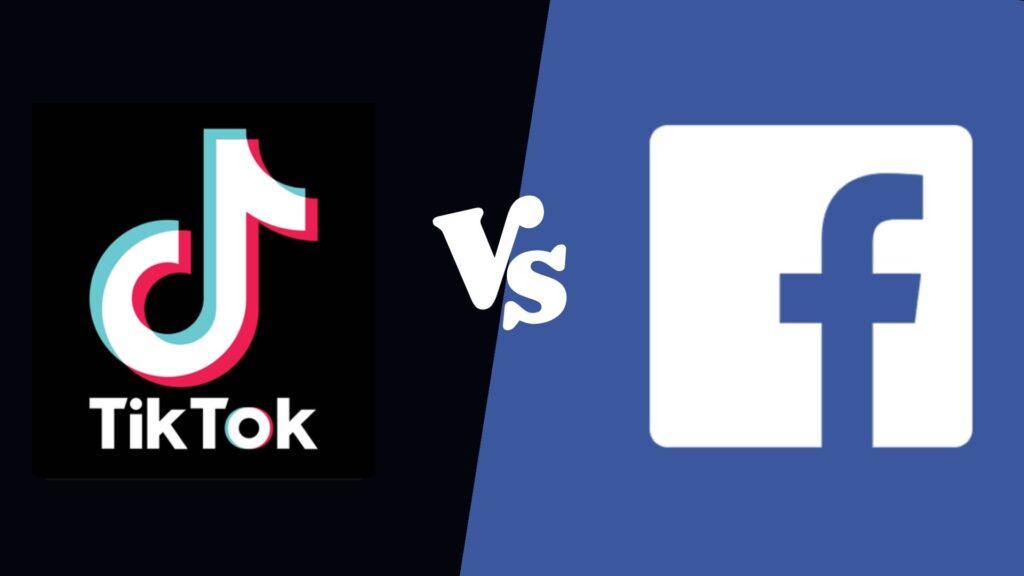In the realm of social media, TikTok and Facebook stand as pillars, each embodying distinct characteristics that resonate with diverse audiences worldwide. TikTok has surged to prominence with its innovative approach to short-form video content, captivating a predominantly younger demographic through its addictive algorithm and emphasis on creativity and entertainment. Its meteoric rise reflects a shift in user preferences towards immersive, bite-sized experiences that foster connection and expression. Conversely, Facebook, with its extensive history and ubiquitous presence, remains a cornerstone of online social interaction, catering to a wide spectrum of users spanning multiple generations. Established as a platform for personal connections, community engagement, and content dissemination, Facebook’s longevity underscores its adaptability and enduring relevance in an ever-evolving digital landscape. By delving into the intricacies of TikTok Vs Facebook, we unravel the nuances of modern social media, exploring how these platforms shape online discourse, influence culture, and redefine human connectivity in the digital age.
Understanding Tiktok and Facebook
TikTok and Facebook represent two distinct paradigms in the social media landscape. TikTok, with its short-form video content and highly engaging algorithm, has captured the attention of younger demographics, fostering creativity and virality. It’s a platform where users can showcase their talents, participate in trends, and connect with like-minded individuals worldwide. On the other hand, Facebook maintains its position as a social networking giant, focusing on connecting friends, family, and communities through a variety of content formats including text, photos, and videos. Its broad user base spans across generations, making it a versatile platform for personal connections, professional networking, and content consumption. Understanding the unique features and dynamics of TikTok Vs Facebook is essential for navigating the diverse landscape of social media and leveraging each platform’s strengths for personal or business objectives.
-
Audience Demographics
- TikTok: TikTok has gained immense popularity among younger demographics, particularly Gen Z and Millennials. It’s known for its short-form, engaging content that resonates with a younger audience.
- Facebook: Facebook, on the other hand, has a more diverse user base, spanning across various age groups, including Gen X and Baby Boomers. It’s considered a more family-friendly platform, with a focus on connecting friends and family.
-
Content Format and Engagement
- TikTok: TikTok thrives on short videos ranging from 15 to 60 seconds. Its algorithm is designed to promote viral content, making it easier for users to gain traction and build a following. Engagement metrics such as likes, comments, and shares are crucial for success on TikTok.
- Facebook: Facebook offers a diverse range of content formats, including text posts, photos, videos, and live streams. While longer-form content is more common on Facebook, the platform’s algorithm heavily favors posts that spark meaningful interactions and conversations among users.
-
Monetization Opportunities
- TikTok: TikTok’s Creator Fund allows users to monetize their content through ad revenue sharing. Additionally, brands often collaborate with TikTok creators for sponsored content and influencer marketing campaigns. However, the eligibility criteria for the Creator Fund are relatively strict, and competition is fierce.
- Facebook: Facebook offers several monetization options for creators, including ad revenue sharing, fan subscriptions, and branded content partnerships. Facebook’s larger user base provides ample opportunities for creators to reach a wider audience and monetize their content effectively.
-
Community and Networking
- TikTok: TikTok’s community is highly interactive, with users engaging through likes, comments, and duets (collaborative videos). The platform fosters a sense of creativity and camaraderie among its users, making it easy to discover and connect with like-minded individuals.
- Facebook: Facebook emphasizes real-life connections, allowing users to connect with friends, family, and acquaintances. Groups and pages on Facebook provide avenues for networking and community building around shared interests, hobbies, or professional affiliations.
-
Privacy and Security Concerns
- TikTok: TikTok has faced scrutiny over privacy and security concerns, particularly regarding data collection practices and its ties to the Chinese government. While the platform has taken steps to address these concerns, including establishing transparency centers and appointing local executives, privacy remains a prominent issue for some users.
- Facebook: Facebook has also been embroiled in numerous privacy scandals, including the Cambridge Analytica data breach. The platform has since implemented stricter privacy controls and enhanced security measures to regain user trust. However, privacy remains an ongoing concern for many Facebook users.
-
Algorithm and Discoverability
- TikTok: TikTok’s algorithm is renowned for its ability to surface personalized content based on user preferences and engagement history. This algorithmic approach ensures that users are constantly exposed to fresh and relevant content, enhancing user experience and retention.
- Facebook: Facebook’s algorithm prioritizes content from friends, family, and groups that users interact with most frequently. While this approach fosters meaningful connections, it can also result in echo chambers and filter bubbles, limiting the diversity of content users are exposed to.
-
Future Growth and Trends
- TikTok: TikTok continues to experience explosive growth, particularly in emerging markets such as India and Southeast Asia. The platform’s innovative features, such as augmented reality effects and challenges, keep users engaged and attract new audiences.
- Facebook: Facebook remains a dominant force in the social media landscape, despite facing challenges from competitors. The platform’s focus on innovation, including virtual reality (VR) and augmented reality (AR) technologies, positions it for continued growth and relevance in the years to come.
See Also – Facebook Vs Instagram
Conclusion
In the showdown between TikTok and Facebook, both platforms offer unique advantages and cater to different audiences. While TikTok excels in short-form, engaging content and appeals to younger demographics, Facebook remains a powerhouse with a diverse user base and numerous monetization opportunities for creators. Ultimately, the choice TikTok Vs Facebook depends on your audience, content strategy, and long-term objectives as a creator or marketer in the ever-evolving world of social media.

